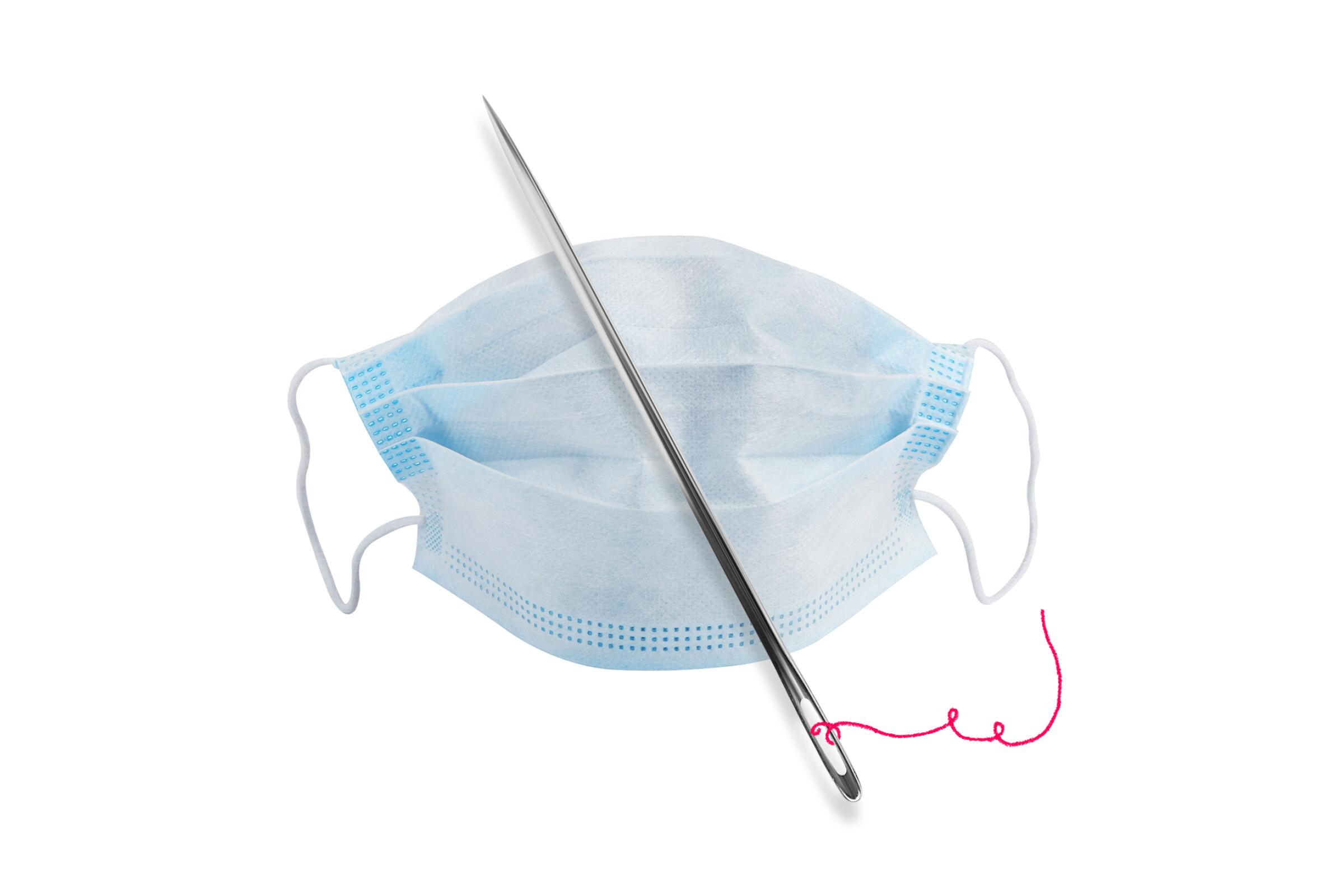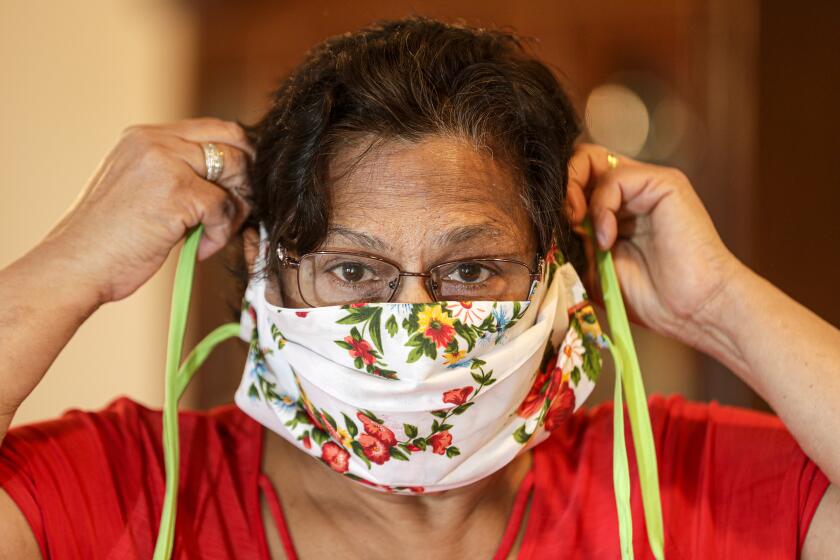As the coronavirus pandemic continues to spread, we’re now learning that any mask is better than no mask, and it may be time for healthy people to start wearing them.
If you’re like many Americans, though, you can’t find a mask — at least not one at a reasonable price. So we’re going to show you how to make your own.
But first, if you are feeling confused about the “should I wear a mask or not” messaging, you’re not alone.
From the beginning of the coronavirus outbreak, the Centers for Disease Control and Prevention’s stance has been firm: Protective masks are not necessary for healthy people who don’t work in the healthcare sector and are not taking care of an infected person at home.
Now, however, many question the CDC’s position on masks as the death toll grows.
On Tuesday, Dr. Anthony Fauci, director of the National Institute of Allergy and Infectious Diseases, told CNN that the White House coronavirus task force is considering recommending community-wide use of masks.
“Mitigation is the answer,” Fauci said later in a press briefing at the White House.
When pressed by reporters, President Trump suggested wearing a scarf in place of scarce store-bought masks. “We are making millions of masks, but we want them to go to the hospitals,” Trump said. “We don’t want people competing with hospitals.”
On Wednesday, Los Angeles Mayor Eric Garcetti urged everyone to wear homemade face masks when performing essential tasks such as grocery shopping and California public health officials said the use of cloth face coverings could reduce the transmission of COVID-19.
“Face coverings are not a substitute for physical distancing or frequent hand washing, which we know are amongst the most effective ways to reduce the spread of COVID-19,” said Dr. Sonia Angell, director of the California Department of Public Health. “Wearing a cloth face covering could provide some additional benefit by acting as a reminder for other people to keep their distance, and it could help reduce the spread of infectious particles from those who could be infected but don’t have symptoms.”
On Friday, the Centers for Disease Control and Prevention issued new guidelines recommending the public voluntarily wear cloth masks in public. The CDC has also posted tips on how to wear a face cloth safely in addition to sew and no-sew face cloth instructions.
“The transmission from individuals without symptoms is playing a more significant role in the spread of the virus than previously understood,” President Trump said when announcing the guidelines at a White House briefing. “So you don’t seem to have symptoms and it still gets transferred.”
No one wants to compete with hospitals that desperately need masks, in fact, a grassroots movement of crafters, designers and manufacturers like Ikea is working to supply hospitals with face masks. So now it’s time to DIY.
We’ve rounded up a variety of mask tutorials, from medical professionals to crafters, from no-sew to advanced, so that you can make your own mask when you absolutely must leave the house. Many of them include free templates in a variety of sizes for children and adults.
When it comes to tips for wearing them, the World Health Organization recommends cleaning your hands before putting on a mask and making sure that there are no gaps between your face and the mask.
How to make a pleated mask — no sewing involved
T-Shirt, Scissors, And A Paper Towel
A doctor explains how to make the safest face mask
How to make a face mask from Joann Fabric and Craft Stores
How to make a N95 PM2.5 face mask
How to make a healthcare mask with special filter pocket
Origami artist turns to folding face masks amid pandemic need


















